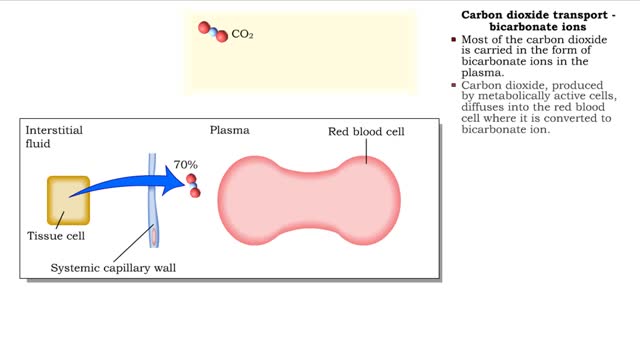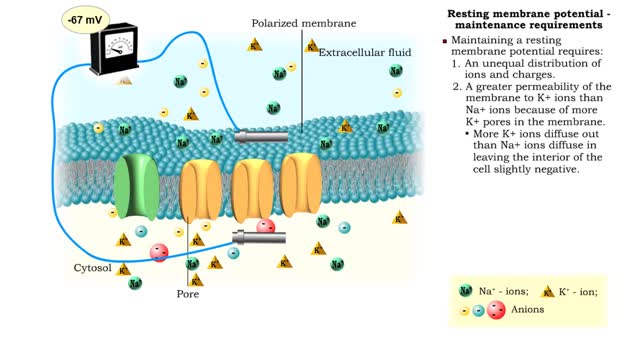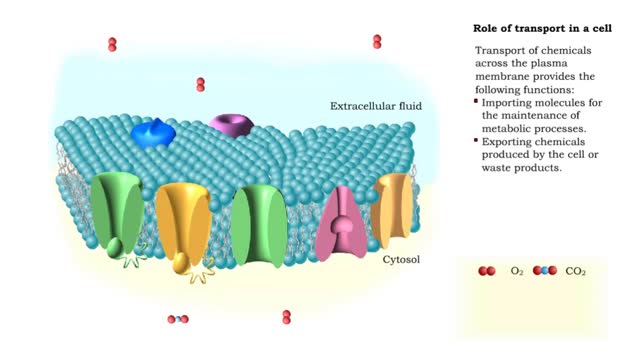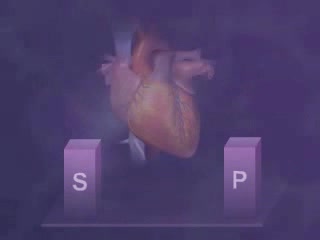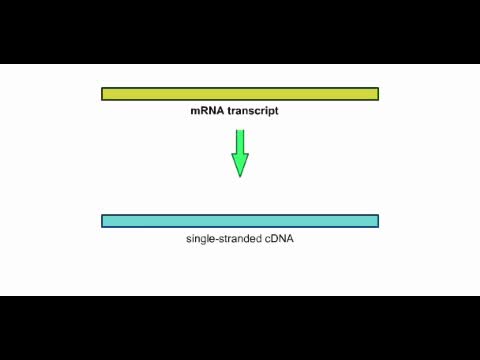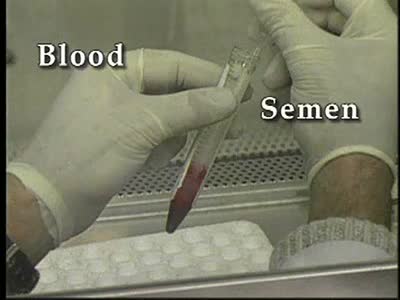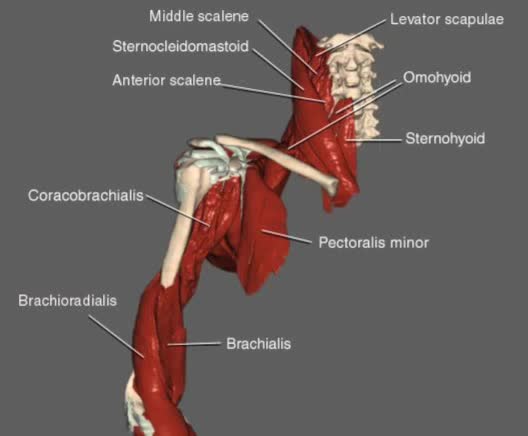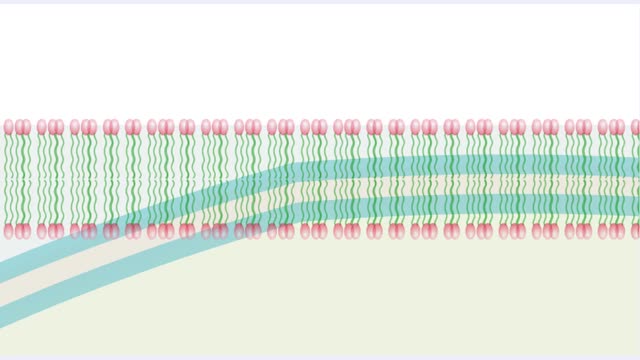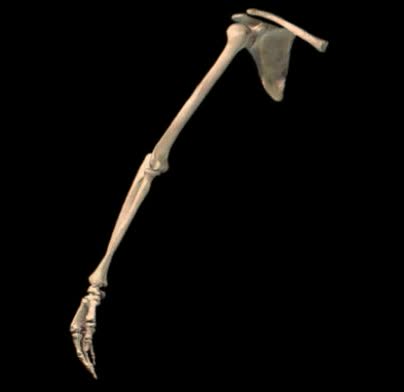Search Results
Results for: 'Overview of interactions in antibody-mediated and cell-mediated immunity Animation'
Methods of carbon dioxide transport - carbaminohemoglobin and bicarbonate ions
By: HWC, Views: 10969
• Carbon dioxide is transported three ways: • As bicarbonate ions in the plasma. • Bound to hemoglobin. • As a dissolved gas in the plasma. • A small percent of carbon dioxide is transported as a dissolved gas. • Some of the carbon dioxide is bound to hemoglobin, in the fo...
Resting membrane potential - electrical polarity and maintenance requirements
By: HWC, Views: 10586
• A resting membrane potential exists when there is a buildup of: 1. positive ions outside the membrane. 2. negative ions inside the membrane. • Membranes with opposing charges are said to be polarized. • The difference in charge applies only to the small distance across the membran...
By: HWC, Views: 11045
Transport of chemicals across the plasma membrane provides the following functions: Importing molecules for the maintenance of metabolic processes. Exporting chemicals produced by the cell or waste products. Communicating with other cells, allowing for the generation and conduction of a...
Autonomic Nervous System Animation
By: Administrator, Views: 14191
Parasympathetic Division Works to conserve energy and innervate the digestive system. When activated, it: stimulates the salivary and digestive glands. decreases the metabolic rate. slows the heart rate. reduces blood pressure. promotes the passage of material through the intestines along...
By: HWC, Views: 5382
This animation shows how an mRNA transcript can be used to make a cDNA strand.
Introduction to Human Immunodeficiency Virus (HIV)
By: Administrator, Views: 13841
Human immunodeficiency virus gains entry into helper T cells, uses the cell DNA to replicate, interferes with normal function of the T cells, and destroys the normal cells. 1 in 10 persons with AIDS: age 50 or older. 4% of all AIDS cases: age 65 or older. AIDS’ main form of treatment: an...
By: Administrator, Views: 787
Four muscles—the supraspinatus, infraspinatus, teres minor, and subscapularis—make up the rotator cuff. It stabilizes the shoulder and holds the head of the humerus into the glenoid cavity to maintain the principal shoulder joint.
Molecules, Membrane Permeability and Structure
By: HWC, Views: 10399
Organisms are not isolated system at equilibrium and need to intake nutrients and electrolytes as remove wastes. Similarly Cells within an organism must also exchange compound by passing them through membrane. The permeability of a membrane is the rate of passive diffusion of molecules th...
By: Administrator, Views: 529
Types of body movement that occur at the diarthrotic joints: - Rotation - Supination
Advertisement



